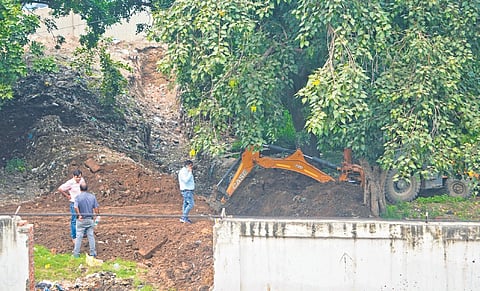

NEW DELHI: The Delhi High Court on Wednesday directed the Shahi Idgah Managing Committee to issue an apology for making “scandalous” remarks about the recent ruling of a single judge on the disputed land ownership. The judge had determined that the land in question belongs to the Delhi Development Authority (DDA), not the mosque.
During a hearing, a bench comprising Acting Chief Justice Manmohan and Justice Tushar Rao Gedela expressed strong disapproval of statements made in the committee’s application, which questioned the legitimacy of the judgment allowing the DDA to install a statue of Rani of Jhansi at Shahi Idgah Park.
The court criticised the committee for framing the legal dispute in communal terms. “There’s a clear attempt to politicise this issue. You are presenting this as a religious matter when it is fundamentally about law and order,” remarked Acting Chief Justice Manmohan. He further stated that the statue’s installation should be a point of pride, particularly in discussions surrounding women’s empowerment.
Justice Gedela added, “Rani of Jhansi is a national icon transcending religious boundaries. The petition is drawing unnecessary communal distinctions. If you truly felt a connection to this land, you should have proposed the statue’s installation yourselves.”
The Shahi Idgah Committee’s lawyer argued that placing the statue facing the mosque could spark tensions in the area. He referenced a prior status quo order from the Delhi Minority Commission, asserting that the statue’s installation violated this directive, which had not been challenged in earlier proceedings.
However, the DDA’s counsel highlighted certain “scandalous” sections in the committee’s pleadings directed at the single judge, prompting the court to demand an apology from the committee.
Following the court’s strong rebuke, the committee’s counsel sought to withdraw the appeal and consented to submit an unconditional apology.